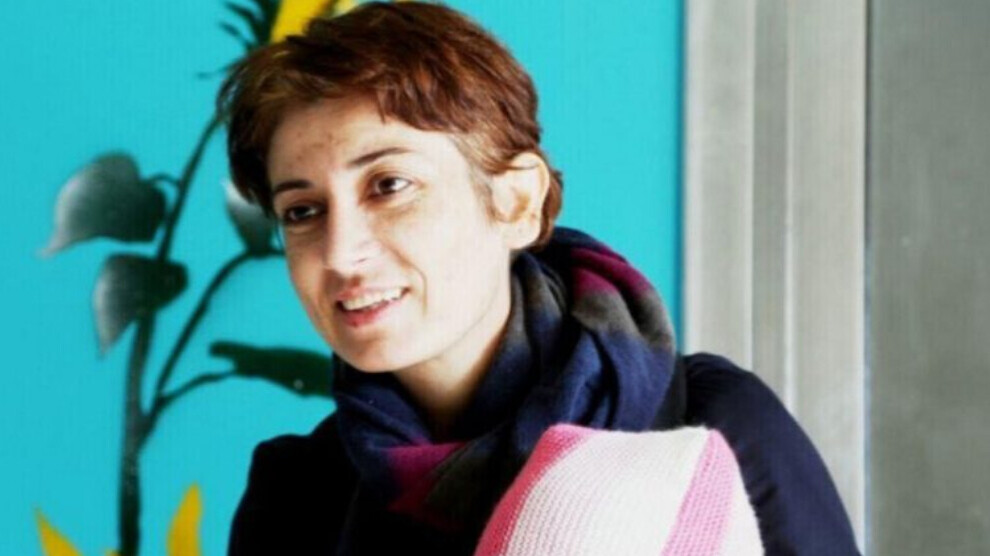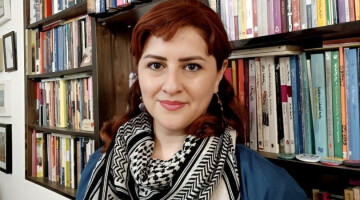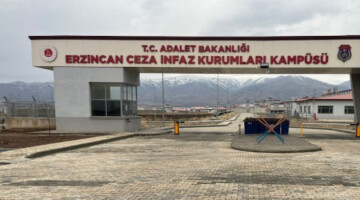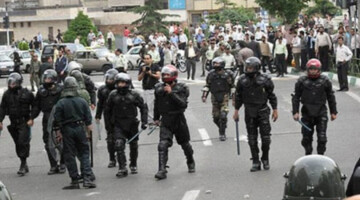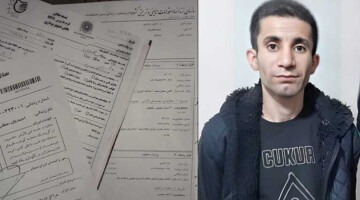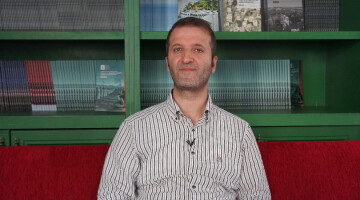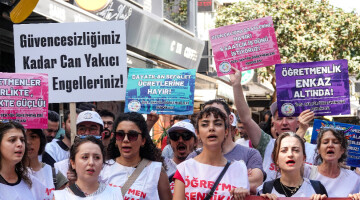The Kurdistan Human Rights Network (KHRN) reported that additional details have emerged about the case of Pakshan Azizi, a Kurdish political prisoner who has been sentenced to death and four years in prison by Branch 26 of the Islamic Revolutionary Court in Tehran on charges of “armed insurrection” (baghi) and “membership of opposition groups”.
According to the verdict issued by Branch 26 of the Islamic Revolutionary Court in Tehran, Azizi’s death sentence stemmed from charges of “armed insurrection” through “effective activities and efforts using weapons to advance the goals of groups that have carried out armed uprisings against the Islamic government and whose leadership remains intact”.
According to the Kurdistan Human Rights Network, the verdict also states that she was sentenced to four years in prison for “membership of opposition groups” through membership of the Kurdistan Free Life Party (PJAK).
Initially, in the first session of the court, Judge Iman Afshari had suggested a lighter sentence based on Article 288 of the Islamic Penal Code. However, in the second session on 16 June 2024, the sentence was changed to Article 287, resulting in the death penalty.
According to Article 288 of the new Islamic Penal Code, “If the members of a rebellious group are arrested before engaging in conflict and using weapons, and if the organisation and its leadership are still intact, they shall be sentenced to third-degree imprisonment, and if the organisation and leadership have been dismantled, they shall be sentenced to fifth-degree imprisonment”.
According to Article 287 of the new Islamic Penal Code, “A group that engages in armed rebellion against the foundation of the Islamic Republic of Iran is considered rebellious, and if weapons are used, its members shall be sentenced to death”.
Throughout her interrogations at the Detention Facility 209 of Tehran’s Evin Prison and her court appearances, Azizi has vehemently denied any involvement in armed operations or membership of PJAK.
Her lawyers, Mazyar Tataei and Amir Raeisiyan, stressed that Azizi had spent seven years in Iraq and Syria as a social worker helping war refugees and had not been involved in any armed activities.
Speaking to Sharq Daily after their client was sentenced to death, her lawyers said: “The death sentence was issued on the charge of armed rebellion, and Ms Azizi was sentenced to death as someone who engaged in armed activities for the goals of a rebel group. This is despite the fact that not only did Ms Azizi not take part in any armed activities, but she had been in Iraq and Syria for seven years and had been forced to live in war refugee camps in the Rojava region of Syria since 2015 as a result of the crimes of the [Islamic State] IS, where she had been helping refugees and victims as a social worker. Even the verdict itself makes no reference to any armed activity or armed confrontation involving Ms Azizi with any governmental or non-governmental Iranian individuals or entities.”
Tataei also responded to the question of what constituted a military or armed action in the verdict by saying, “Look, this sentence is literally in the verdict: ‘She was armed and travelled in Iraq and Syria and participated in the Syrian civil wars.'”
The verdict issued by Branch 26 of the Islamic Revolutionary Court in Tehran, referring to the anti-government protests by Women, Life, Freedom following the government-sanctioned murder of Jina Mahsa Amini, which it dubbed the “2022-23 riots”, stated, “She [Pakhsan Azizi] entered the country to inflame the situation in Iran, contacted the families of those killed in the riots of 2022-23, explained to them the goals and programmes of the opposition group, and encouraged them to continue their protests and not to give up the blood revenge for their children.”
The verdict also mentions Azizi’s arrest in 2009 during a student protest at Tehran University against the execution of Ehsan Fattahian: “The defendant also participated in a protest gathering against the execution of one of the terrorist elements of Komala”.
The lawyers have announced that they will appeal the verdict.
Additionally, three members of the political prisoner’s family were sentenced by the same court to one year in prison each on charges of “assisting a criminal to evade trial and conviction”.
The Kurdish political prisoner, who has been denied visits or contact with her family since 6 July 2024 by order of the Prison Disciplinary Council, recently wrote a letter from prison describing the oppression she has faced because she is a woman and a Kurd, detailing her and her family’s violent arrest, severe torture during detention and five months in solitary confinement.
Azizi, born in Mahabad in 1984 and a graduate of Allameh Tabataba’i University in Tehran, was arrested by the Ministry of Intelligence in Tehran on 4 August 2023 and taken to Ward 209 of Evin Prison.
Several of her family members were also arrested at the same time but released after several days of interrogation.
During her detention, Azizi was denied family visits and legal representation, and was subjected to torture to extract forced confessions.
On 11 December 2023, she was transferred from Ward 209 to the women’s ward of Evin Prison, after being held in solitary confinement for four months and one week.
Azizi has a history of prior arrests by the security forces. She was first arrested on 16 November 2009 during a gathering of Kurdish students at Tehran University to protest against politically motivated executions in Kurdistan and was released on bail after four months and later left Iran, living in the Kurdistan Region of Iraq in recent years.
During the Islamic State (IS) attack on Rojava (Syrian Kurdistan), she worked as a social worker to help refugees in the region.

